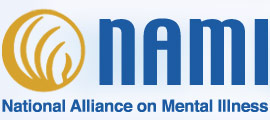About
BOARD
June 26, 2018
Jack Haggerty, Advocate
Sharon Lund, The Falls Agency, Board Secretary/Treasurer
Susan McNellis, Assistant County Attorney, Scott Co, MN, Board Chair
Thorne LaPointe, Convener, Mni Ki Wakan, World Indigenous Decade of Water Summit Wakinyan LaPointe, Convener, Mni Ki Wakan, World Indigenous Decade of Water Summit Deb Cavitt, MN Association for Childrens Mental Health
Teri Phillips, Family member
Wayne MacFarlane, Police Officer, Anoka Police Department
ADVISORY COUNCIL
Lt Randy Carroll, Hennepin County, MN Sheriff’s Office,retired
Andrew Gadtke, Author, advocate
Charles Jensen, Advocate
Officer Eric P. Mueller, Winona, MN Police Department
Jan Reichert, Family member
Veta Segal, Friend of Barbara Schneider
Jane Berg, Ramsey County, MN Public Health Paul Zerby, Attorney retired Sgt Kent Mueller, Ramsey County, MN Sheriff’s Office Kitty Westin, Emily Programs
History
Barbara Schneider Foundation is busy working with its partners in law enforcement, courts, corrections, mental health, social service and health care systems to improve the response to those in mental health crisis and to prevent mental health crises. The Foundation formed in response to the death of Barbara Schneider on June 12, 2000, when she was shot by police during a confrontation in a mental health crisis call. Since then the Foundation has worked with its partners in all these systems to grow the CIT (Crisis Intervention Team) movement in Minnesota.
Immediately after Barbara Schneider’s tragic death, mental health community advocates and law enforcement professionals came together to vow to do better. Since then Barbara Schneider Foundation has been involved in training thousands of police officers and mental health professionals and in educating state and local policy makers and has worked to improve the health care response to mental health crisis. The result has been more appropriate and effective mental health crisis response, improved officer safety and growing police/community partnerships.
At the first meeting between mental health and law enforcement after Barbara’s tragic death, mental health community advocates from Barbara’s neighborhood came together. They were joined by representatives of Tasks Unlimited, a non-profit community mental health provider of long-term support services for people struggling with severe mental illness; Falls Agency, a South Minneapolis based advertising firm; Minneapolis PD Deputy Chief Greg Hestness and Senator Wellstone’s office. They discussed ways of preventing a future tragedy as the best way to work together to respond to Barbara’s death.
The focus was on training in mental health crisis response for police officers and for needed reforms to the systems and procedures used in response to 911 calls regarding a mental health crisis. As this work progressed it became clear that more than mental health crisis response needed to be reformed. It was determined that these crises could be prevented and the criminalization of mental illness ended. It is widely recognized that the de-institutionalization of people with severe mental illness left many living in the community without adequate support.
The decreasing number of inpatient beds in mental health hospitals and hospital psychiatric wards and the lack of needed community based mental health providers, that can provide the long-term support this population needs to live successfully, means that many people struggling with severe mental illness find themselves repeatedly and un-necessarily in mental health crisis. BSF decided it would be imperative to broaden the mission beyond improving crisis mental health response to include reforms needed to prevent mental health crises in the identifiably at-risk population that is currently without the long-term support services they need to live successfully.
BSF is a non-profit 501(c)(3) organization that was incorporated as the Barbara Schneider Foundation on February 22, 2002. BSF has retained a part time paid and volunteer staff to provide leadership in Minnesota to trainers of first responders and those who manage the crisis response system and to work to end this revolving door for people with severe mental illness.
In addition, today BSF works with a variety of trainers to provide trainings related to first responder mental health crisis calls and crisis prevention. Education of the public and policy makers is another ongoing area of work as is advocacy for needed improvements in all the partner systems that respond to the population at risk for mental health crisis response including: courts, corrections, emergency medicine, social services and mental health.
Staff
Mark Anderson has been our Executive Director since 2003. He served as Senior Advisor and Policy Liaison Senator Wellstone’s Senate. Anderson was Wellstone’s lead health care and mental health staff person in Minnesota. He also staffed Governor Perpich’s board and commission appointments operation in the Governor’s office for two years before joining Wellstone’s staff. He has a wealth of mental health policy knowledge at the state and federal levels and is well known in Minnesota ’s mental health and health care communities. He has a BA from the University of California, Berkeley, and an MA from Hamline University.
Renee Jenson has an expanded role as our Community Collaborations Coordinator.






